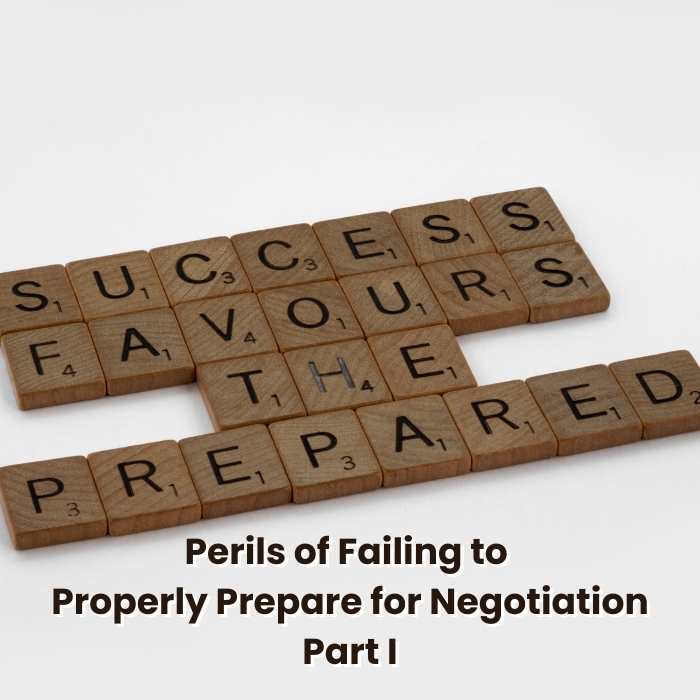
Stop Pitching, Start Listening
I still remember the moment I realized I wasn’t actually listening.
It was a meeting with a potential donor—someone whose name carried weight in philanthropic circles. I had prepared meticulously, armed with impact reports, success stories, and a well-crafted pitch. I sat across from him, eager to secure his support, and as he spoke, I nodded along, waiting for the perfect moment to insert my points.
At one point, he paused, looking directly at me.
“You’re not really hearing me, are you?” he asked, a slight smirk on his face.
I was stunned. Of course, I was hearing him! I could repeat back everything he had just said. But that wasn’t what he meant.
“I know what you want from me,” he continued, “but do you even know what I want?”
In that instant, I realized my mistake. It was as though I was a child fixated on the candy on the table just out of reach. I had been so focused on presenting my case, so busy thinking about how to guide the conversation toward a commitment, that I had completely missed the opportunity to truly understand his perspective. I had mistaken hearing for listening.
That conversation changed everything for me. It forced me to rethink my approach—not just with donors, but with corporate sponsors, customers, and every relationship I sought to build. I had to stop making conversations about me and start making them about them.
Who Is the Customer, Really?
One of the biggest shifts I had to make was recognizing who my “customer” really was.
For years, I had thought of donors and sponsors as the primary audience—the ones funding the work, the ones writing the checks. But they weren’t the true customers. The people who benefited from the work we did—the families receiving assistance, the students gaining scholarships, the communities being uplifted—they were the true customers.
Donors weren’t paying for a service for themselves; they were paying to create an impact in someone else’s life.
I started asking myself: Am I talking to donors in a way that connects them to the people they want to help? Or am I just treating them as sources of funding?
That realization led me to a crucial question that changed the way I interacted with every donor, sponsor, and customer:
“What does this person actually want?”
Not just what they say they want—but what’s driving them on a deeper level.
Getting Past the Surface: Learning to Listen for What Really Matters
The first thing I had to do was train myself to stop assuming I knew what people wanted. Too often, we hear phrases like:
- “I want to support a cause that aligns with my company’s values.”
- “I’m looking for a way to give back.”
- “We’re interested in corporate sponsorships that fit our brand.”
These sound straightforward. But what do they really mean? I had been taking these statements at face value instead of digging deeper.
So I started asking different kinds of questions:
- “What led you to take an interest in this cause?”
- “Can you share a time when giving to an organization felt truly meaningful for you?”
- “What does a successful partnership look like to you?”
And then—most importantly—I learned to shut up.
I forced myself to listen, not just to the words, but to the tone, the emotion, the pauses. I started paying attention to what people weren’t saying. And in doing so, I discovered the unspoken motivations that drive real action.
For instance, one donor told me she wanted to give because she “believed in education.” But when I listened more carefully, I realized she wasn’t just talking about education in general—she was passionate about first-generation college students because she had been one herself.
By hearing what was beneath her words, I was able to connect her with a specific initiative that resonated with her personal story. That single moment of deep listening led to one of the largest commitments our organization had ever received.
Breaking the Habit of Transactional Listening
Most of us think we’re good listeners. But in reality, we’re just good at waiting for our turn to talk.
Busy, high-achieving people—whether donors, corporate sponsors, or customers—are especially prone to this. Their minds are always moving, always anticipating the next step, always looking for efficiency. And because I, too, had fallen into that habit, I was unintentionally mirroring it in my conversations.
I had to retrain myself to stop thinking about my response while the other person was still talking. Instead, I started focusing entirely on their words, allowing a pause before I responded, and repeating back key points to confirm I had understood them.
I also learned that the best way to show someone I was truly listening was to ask better follow-up questions:
- “That’s really interesting—can you tell me more about what that experience was like for you?”
- “You mentioned wanting to make a bigger impact. What does that look like in your mind?”
- “I hear that visibility is important for you—what kind of audience are you hoping to reach?”
This approach created something I hadn’t expected: trust.
The more I listened, the more donors, sponsors, and customers opened up. They told me things they hadn’t shared with other organizations because, for once, someone was actually hearing them.
The Follow-Up: Where Real Relationships Are Built
Another hard lesson I learned? Listening doesn’t end when the conversation does.
Early on, I was guilty of having a great first meeting, then following up with a generic email:
“Thanks for your time. Looking forward to working together.”
I might as well have said, “I don’t actually remember anything you said.”
Real listening means closing the loop in a way that proves you heard them.
Now, my follow-ups sound more like this:
“John, I really appreciated our conversation about how corporate partnerships can also serve as employee engagement tools. I took a look at your past CSR initiatives, and I think we could build something that connects with what you’ve already been doing. I’d love to explore that with you—when would be a good time to discuss next steps?”
A follow-up like that shows:
- I paid attention.
- I understand their priorities.
- I’m thinking about how to create something valuable for them.
That kind of listening leads to relationships—not just transactions.
Listening Is the Ultimate Competitive Advantage
Most people in fundraising, sales, or business development spend too much time convincing and not enough time understanding.
What I learned the hard way is that people don’t invest in organizations. They invest in relationships.
And relationships are built on feeling heard, seen, and valued.
If you want to build lasting connections with donors, sponsors, or customers, stop crafting the perfect pitch. Stop trying to be the smartest person in the room. Stop focusing on what you need.
Instead, sit down, ask the right questions, and truly listen.
Because when people feel heard, they don’t just give money or sign deals.
They commit.










